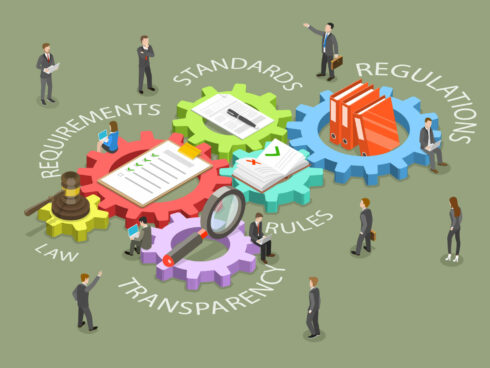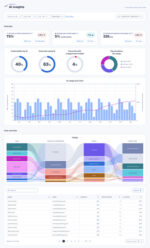
OneTrust today announced its Data Use Governance solution, which it said is designed to close the gap between traditional data governance and the real-time compliance demands of AI. The solution provides such things as programmatic data policies and enforcement along with automated data controls to speed data enablement for a company’s AI efforts.
“The future of governance isn’t about restricting data, it’s about ensuring data is used responsibly, efficiently, and in alignment with data and AI innovation goals,” Blake Brannon, chief product and strategy officer at OneTrust, said in the announcement. “The biggest challenge for data governance teams has been enforcement, impossible to achieve without translating documented data policies into code. OneTrust now enables our customers to turn data policies, grounded in compliance, privacy, and consent requirements, into programmatic logic that automates enforcement at the level of the data query itself. With OneTrust, data use governance is no longer a barrier — it’s an enabler.”
OneTrust explained that governance today cannot keep pace with how data is used today, with its complexities and the speed with which data is being used. That, the company said, leads to problems such as compliance risks and slowness due to data bottlenecks. “A governance strategy that is policy-centric, programmatic, and project-initiated ensures that data is usable, compliant, and scalable in the AI era,” the company wrote in its announcement.
The Data Use Governance solution helps with data organization, turn policies into enforceable control code, enforceable data controls and transparent auditing, the company said. For example, the solution uses AI-powered data classification the capture data in the contexts of business, regulatory compliance, use consent, and data itself, “and stores this context as machine-readable data labels, a required foundation for automating machine-enforceable data policies,” OneTrust wrote.
With the new Data Policy Enforcement feature, now in private preview, governance teams can automate enforcement by predefining conditions, rules and policies to regulate AI-ready data sets, the company said.







